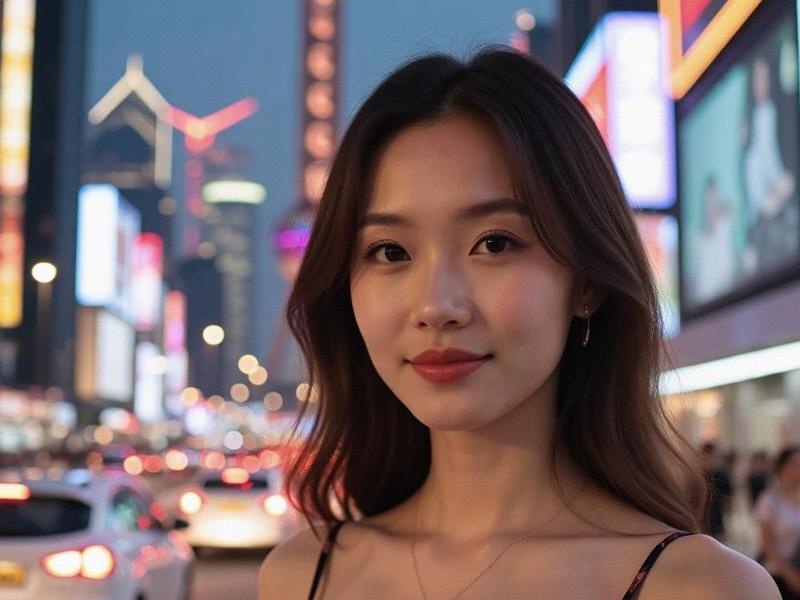Shanghai's Nightlife Renaissance: How Luxury Entertainment Venues Are Redefining Urban Leisure
⏱ 2025-05-29 00:20 🔖 上海龙凤419
📢0℃

The neon lights of Shanghai's entertainment districts glow brighter than ever as a new generation of luxury clubs and high-end entertainment venues redefine urban nightlife in China's most cosmopolitan city. What began as simple KTV parlors and discotheques in the 1990s has evolved into a sophisticated $3.2 billion entertainment industry that blends Eastern hospitality with Western-style club culture.
At the forefront is "M1NT Shanghai", the legendary members-only club that set new standards when it opened in 2013. Perched on the 24th floor of a Huangpu district skyscraper, M1NT's shark tank bar and 360-degree city views have made it a symbol of Shanghai's aspirational nightlife. General Manager David Yang explains: "We're not selling alcohol - we're selling experiences. Our clients want exclusivity combined with artistic sophistication."
爱上海同城419 This premiumization trend extends beyond traditional nightclubs. The past three years have seen the rise of "entertainment complexes" - massive venues combining multiple leisure concepts. "TAXX Ultra", spanning 3,000 square meters in Jing'an district, features a main club space, private KTV rooms, a craft cocktail bar, and even a small contemporary art gallery. Such hybrid models now account for 42% of Shanghai's high-end entertainment revenue, according to Shanghai Commerce Commission data.
Technology integration has become another hallmark. At "First-X", patrons use facial recognition for entry and mobile apps to order premium bottles that arrive via robotic servers. The venue's "smart dance floor" adjusts lighting and music tempo based on real-time crowd energy levels measured by AI sensors. "We're creating the nightclub of the metaverse," says founder Lin Wei, whose company has filed 18 entertainment-related technology patents.
上海龙凤419自荐
The clientele profile has shifted dramatically. While expats once dominated Shanghai's nightlife, domestic consumers now account for 78% of high-end venue spending. Wealthy Chinese millennials and Gen-Zers favor "clean entertainment" options - venues emphasizing premium service over wild partying. This has led to the rise of members-only tea houses with live jazz and "business KTVs" where executives network in soundproofed rooms equipped with simultaneous translation technology.
爱上海同城对对碰交友论坛 However, the industry faces challenges. Stricter regulatory oversight since 2022 has required all entertainment venues to implement real-time ID verification systems linked to police databases. Noise complaints in residential areas have led to 15% of clubs installing advanced soundproofing at costs exceeding $200,000 per venue.
The future may lie in day-night versatility. Newer venues like "Cloud 9" operate as co-working spaces by day before transforming into entertainment spaces at night. Others incorporate wellness elements - the recently opened "O2 Club" features an oxygen bar and recovery lounge for guests who overindulge.
As Shanghai positions itself as a global consumption hub, its entertainment industry reflects broader societal shifts. The smoke-filled discos of yesterday have given way to polished venues where business gets done, art gets appreciated, and leisure becomes lifestyle. In a city that never sleeps, the nightlife economy continues to evolve in ways that mirror China's changing relationship with entertainment, status, and urban living.
Shanghai After Dark: How Luxury Entertainment Venues Are Redefining Urban NightlifeDelta Dynamics: How Shanghai's Economic Gravity is Reshaping the Yangtze River Basin"From Water Towns to Smart Cities: The Cultural DNA Reshaping Shanghai's Metropolitan Identity"Greater Shanghai 2025: The Making of a Global MegalopolisShanghai Beauties: A Modern Portrait of Elegance and BeautyNeon Dragon: The Reinvention of Shanghai's Entertainment Club Industry in the Post-Pandemic EraQuantum Leap: How Shanghai and Its Satellite Cities Are Rewriting the Rules of Regional DevelopmentShanghai: A Vibrant City of Diversity and Innovation"Shanghai's New Femininity: How Urban Women Are Redefining Chinese Modernity"The Shanghai Nexus: When One City Becomes Thirty

